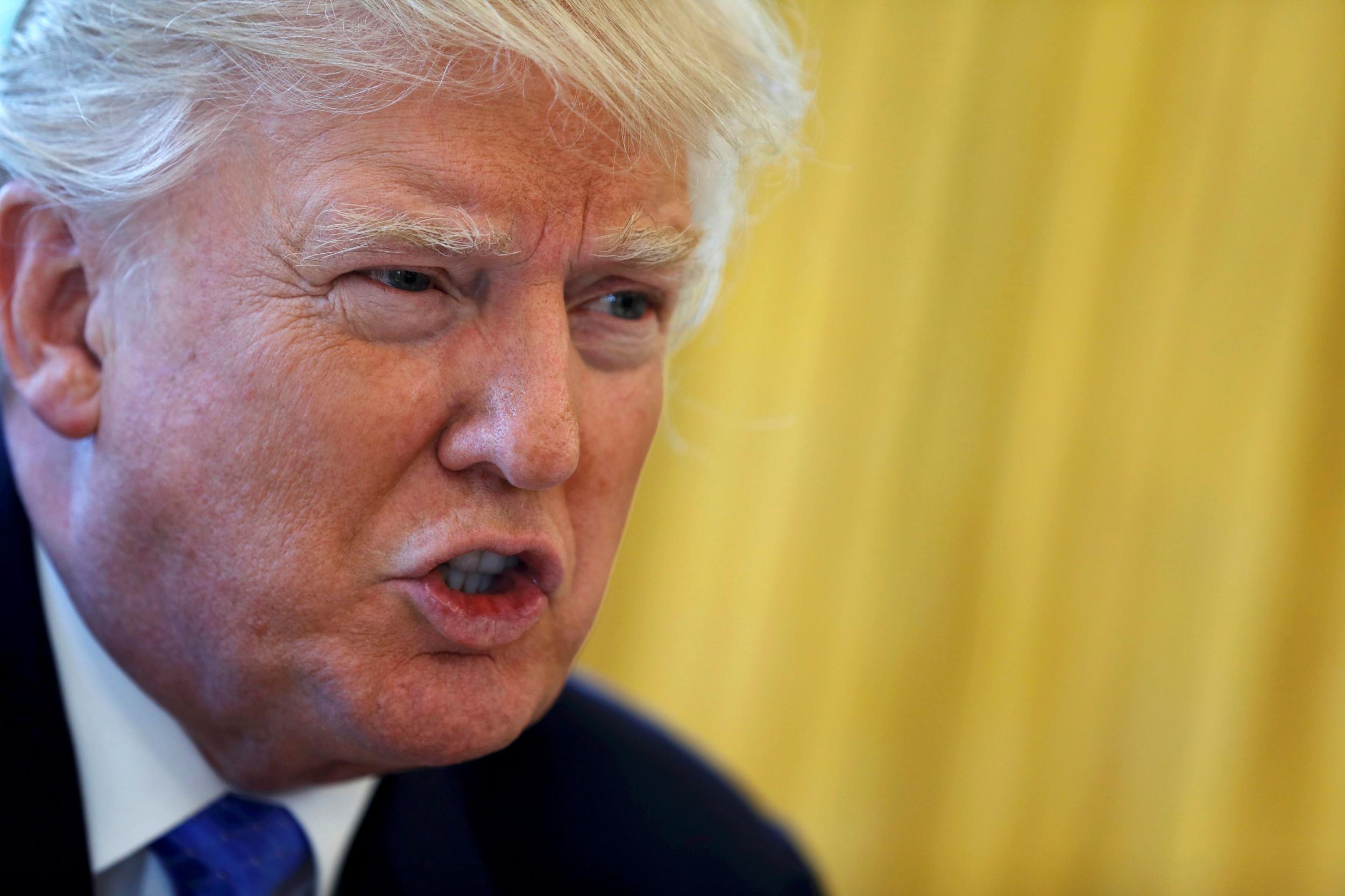Japanese interpreters are struggling to translate Donald Trump
'If we translated his words as they are, we would end up making ourselves sound stupid.'

Your support helps us to tell the story
From reproductive rights to climate change to Big Tech, The Independent is on the ground when the story is developing. Whether it's investigating the financials of Elon Musk's pro-Trump PAC or producing our latest documentary, 'The A Word', which shines a light on the American women fighting for reproductive rights, we know how important it is to parse out the facts from the messaging.
At such a critical moment in US history, we need reporters on the ground. Your donation allows us to keep sending journalists to speak to both sides of the story.
The Independent is trusted by Americans across the entire political spectrum. And unlike many other quality news outlets, we choose not to lock Americans out of our reporting and analysis with paywalls. We believe quality journalism should be available to everyone, paid for by those who can afford it.
Your support makes all the difference.Translators around the world are struggling to interpret Donald Trump’s unique speaking style with the Japanese finding it particularly “nightmarish” to translate what they call “Trumpese”.
English-Japanese interpreters are reportedly struggling to follow the US President’s speeches, with many highlighting the contrast in style with his predecessor Barack Obama who was recognised as a great orator.
“He rarely speaks logically, and he only emphasises one side of things as if it were the absolute truth. There are lots of moments when I suspected his assertions were factually dubious,” interpreter Chikako Tsuruta told The Japan Times.
“He is so overconfident and yet so logically unconvincing that my interpreter friends and I often joke that if we translated his words as they are, we would end up making ourselves sound stupid.”
Ms Tsuruta, who routinely covers US news as an interpreter for CNN, ABC and CBS, raises the important issue dividing the translation community - whether controversial rhetoric should be toned down by the interpreter.
Some believe inflammatory language should be neutralised while others remain adamant that translators should not interfere with tone or register.
However, the difficulty of translating Mr Trump does not necessarily arise from the language he uses.
A Carnegie Mellon University Language Technologies Institute (LTI) “readability analysis” of presidential campaign speeches revealed last year that the former real-estate mogul’s lexical complexity was the lowest of any of his rival candidates or past US presidents.
Experienced broadcast interpreter Miwako Hibi said it was “very hard” to follow Mr Trump’s train of thought as he speaks.
She told The Japan Times of her feeling of dread while she was translating Mr Trump’s victory speech live in November 2016.
“When he suddenly said ‘Reince is a superstar,’ I was literally thrown off. Only after the camera zoomed in on the face of a ‘Reince’ did I realise who Trump was talking about, and I hastily added, for the sake of the audience, that it’s actually ‘Reince Priebus, the Republican National Committee chairman,’” Ms Hibi said.
“The convenient thing about the Japanese language, however, is that it tends to do away with a subject in a sentence, so in this particular case, I first translated ‘superstar’ without clarifying who Trump was referring to, and carried on like this until I got a fuller picture.”
However his reference to “secretariat,” threw her, thinking he was referring to Mr Preibus by another name.
“I mistranslated that one,” she said. “It didn’t even occur to me that he was talking about a race horse. … It’s really hard to follow his train of thought.”
For retired interpreter Kumiko Torikai, when a subject is making racist or misogynistic comments a translator’s job becomes complicated - one of the reasons she decided to leave the profession in the 1980s.
“As an interpreter, your job is to translate the words of a speaker exactly as they are, no matter how heinous and what an outrageous liar you find the speaker to be,” she said.
“You set aside all your personal emotions and become the speaker yourself. It’s a really tough thing, not being allowed to demonstrate your own judgement about what is right and what is wrong. And that’s why I quit.”
However, she insisted: “If Trump is not making sense, you don’t get to make sense, either. If his language is coarse, that’s the way you translate him."
Subscribe to Independent Premium to bookmark this article
Want to bookmark your favourite articles and stories to read or reference later? Start your Independent Premium subscription today.
Join our commenting forum
Join thought-provoking conversations, follow other Independent readers and see their replies
Comments